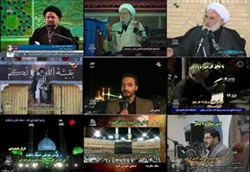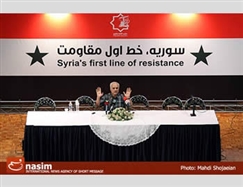

Spotlight on Iran (Week of August 8-15, 2012)

Spotlight on Iran (Week of July 11-18, 2012)

The Road to the First Lebanon War by Dr. Reuven Erlich (Col. Ret.)*
Previous years bulletins
20242023202220212020201920182017201620152014201320122011200920082007200620052004Syria
Syria is a central factor in the Arab-Israeli conflict and has been in conflict with the State of Israel since its establishment. Syria’s basic position rejects the Zionist idea and views the State of Israel as a foreign element that must be uprooted. Since its establishment, Syria has led the political and military struggle against pre-state Israel and the State of Israel. Syria is demanding that Israel give up its control over an area of about 1,200 square kilometers in the Golan Heights, which was occupied by Israel in 1967. In view of its profound hostility to Israel, Syria has supported the Palestinian terrorist organizations and Hezbollah for many years. Syria was designated as a terrorism-supporting state by the US State Department back in 1979.
Despite repeated attempts since the early 1990s to reach a peace agreement with Syria, an official state of war still exists between it and Israel. These relations have been influenced by the involvement of elements such as the Soviet Union and Iran, Syria’s relations with other Arab countries (Egypt, Jordan and Lebanon) and its relations with the Palestinians. These relations have also been influenced by the fact that Syria perceives Israel’s territory as part of what it calls Greater Syria.
Since early 2011, there has been a civil war in Syria between President Bashar Assad and the forces loyal to him, and rebel organizations with various ideologies and political orientation. The civil war has led to the destruction of the country’s infrastructure, the removal of Syria from the Arab League, and tension in its relations with Sunni countries (Saudi Arabia, Qatar, Jordan and Turkey). Syria’s relations with the United States and Western countries have also deteriorated. On the other hand, the Syrian regime is supported by Russia, Iran and Hezbollah, and by Shiite militias supported by Iran.
